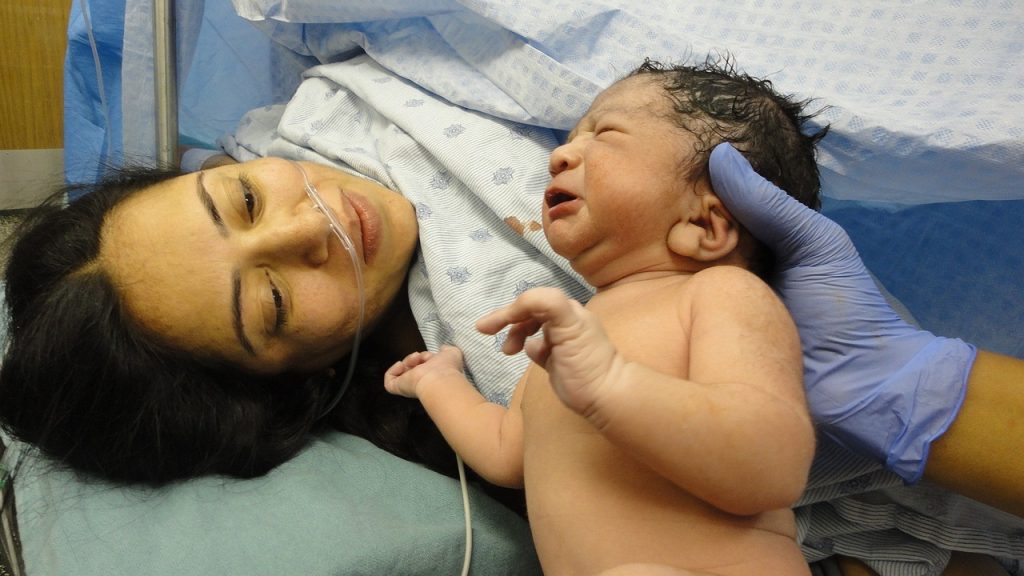Study Reveals Increase in Pregnancy Complications in Illinois
 Recently, Northwestern Medicine published a study that finds that maternal health problems and birth complications have increased in Illinois. Severe maternal morbidity or severe health impacts from labor and delivery went up from 1.4% to 2% in connection with 988,000 births between 2016-2023 at more than at 127 hospitals in Illinois. In addition, researchers found increased rates of gestational diabetes, mental health problems, obesity, and high blood pressure, all of which are risk factors for maternal morbidity and complications around birth. Some of the increase may have to do with medical errors. If you were harmed or lost a loved one due to what you believe was a medical error, you should call the seasoned medical malpractice lawyers of Moll Law Group. Billions have been recovered in cases with which we’ve been involved.
Recently, Northwestern Medicine published a study that finds that maternal health problems and birth complications have increased in Illinois. Severe maternal morbidity or severe health impacts from labor and delivery went up from 1.4% to 2% in connection with 988,000 births between 2016-2023 at more than at 127 hospitals in Illinois. In addition, researchers found increased rates of gestational diabetes, mental health problems, obesity, and high blood pressure, all of which are risk factors for maternal morbidity and complications around birth. Some of the increase may have to do with medical errors. If you were harmed or lost a loved one due to what you believe was a medical error, you should call the seasoned medical malpractice lawyers of Moll Law Group. Billions have been recovered in cases with which we’ve been involved.
Consult Seasoned Attorneys of Moll Law Group About Pregnancy Complications
Doctors are aware of the stress pregnancy places on the body. Sometimes chronic illnesses and conditions can be exacerbated by pregnancy and the hormonal changes involved. In the study, which was published in the journal Obstetrics & Gynecology Open, researchers found that Black women have over twice the rate of serious complications that white women do. Also facing greater risks of severe maternal complications across racial groups are those pregnant women who live in high-poverty neighborhoods. The study found an increase of over 22% in vaginal birth complications and an increase of almost 49% with cesarean birth complications.
According to the study, greater access to prenatal care and health counseling prior to pregnancy would be a crucial move towards reducing maternal health problems and birth complications. When a mother has medical conditions during pregnancy, doctors may need to make changes to the usual recommendations for what sorts of tests are performed, what medications are taken, or how delivery is timed. The study’s authors also highlighted the work of Illinois Perinatal Quality Collaborative to reduce maternal disparities during labor and delivery and noted that increased access to doulas and patient navigator programs—and policies to reduce poverty—can also have a positive impact.
 Illinois Injury and Mass Tort Lawyer Blog
Illinois Injury and Mass Tort Lawyer Blog


 Two preterm formula cases have been tried against manufacturers. The president of the American Academy of Pediatrics has emphasized that preterm infant formula is both routine and necessary in the care of preterm infants. However, last year, there was a
Two preterm formula cases have been tried against manufacturers. The president of the American Academy of Pediatrics has emphasized that preterm infant formula is both routine and necessary in the care of preterm infants. However, last year, there was a  Sentinel events are significant medical mistakes that affect patient safety and result in severe temporary harm, permanent harm, or death. The
Sentinel events are significant medical mistakes that affect patient safety and result in severe temporary harm, permanent harm, or death. The  The new feature length documentary “
The new feature length documentary “ CNN
CNN 
